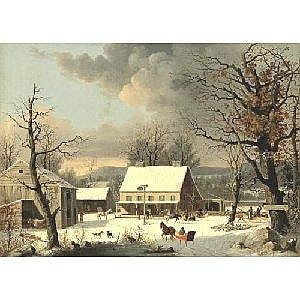Here’s our weekly roundup of new jobs. Happy hunting!
New England
- Manager of Youth Education [Tower Hill Botanic Garden, Boylston, MA]
- Director of Education [Nantucket Historical Association, Nantucket, MA]
- Public Programs Coordinator [Nantucket Historical Association, Nantucket, MA]
- Donor Relations Manager [Wadsworth Atheneum Museum of Art, Hartford, CT]
- Manager of Studio Class Programs [Worcester Art Museum, Worcester, MA]
- Cafe and Visitor Services Associate [deCordova Sculpture Park and Museum, Lincoln, MA]
- Database Marketing Coordinator [Museum of Fine Arts, Boston, MA]
- Public Relations Associate, [Museum of Fine Arts, Boston, MA]
- Special Collections Cataloger [Mystic Seaport, Mystic, CT]
- Major Gifts Officer [Gore Place, Waltham, MA]
- Manager of Membership Operations [The Trustees Reservation, Boston, MA]
Mid-Atlantic
- Director, University Galleries [Montclair State University, Montclair, NJ]
- Director of Exhibit Operations [National Children’s Museum, Washington, DC]
- Graduate Curatorial Internships [National Gallery of Art, Washington, DC]
- Assistant Curator [The Metropolitan Museum of Art, New York, NY]
- Executive Director [East Hampton Historical Society, East Hampton, NY]
Midwest
- Director of Individual Giving [Conner Prairie Museum, Fishers, IN]
- Director of Exhibitions [Calvin College, Grand Rapids, MI]
South
- Volunteer Program Coordinator/Manager [South Carolina State Museum, Columbia, SC]
- Vice President for Advancement [The Virginia Historical Society, Richmond, VA]
- Curator of Science and Technology [South Carolina State Museum, Columbia, SC
- Associate Registrar [The Modern Art Museum of Fort Worth, Fort Worth, TX]
- Curator of Asian Art [Ackland Museum of Art, Chapel Hill, NC]
- Director of Public Engagement [Sarasota Museum of Art, Sarasota, FL]
- Operations and Logistics Coordinator Manager [Dietl International Services, Herndon, VA]
West
